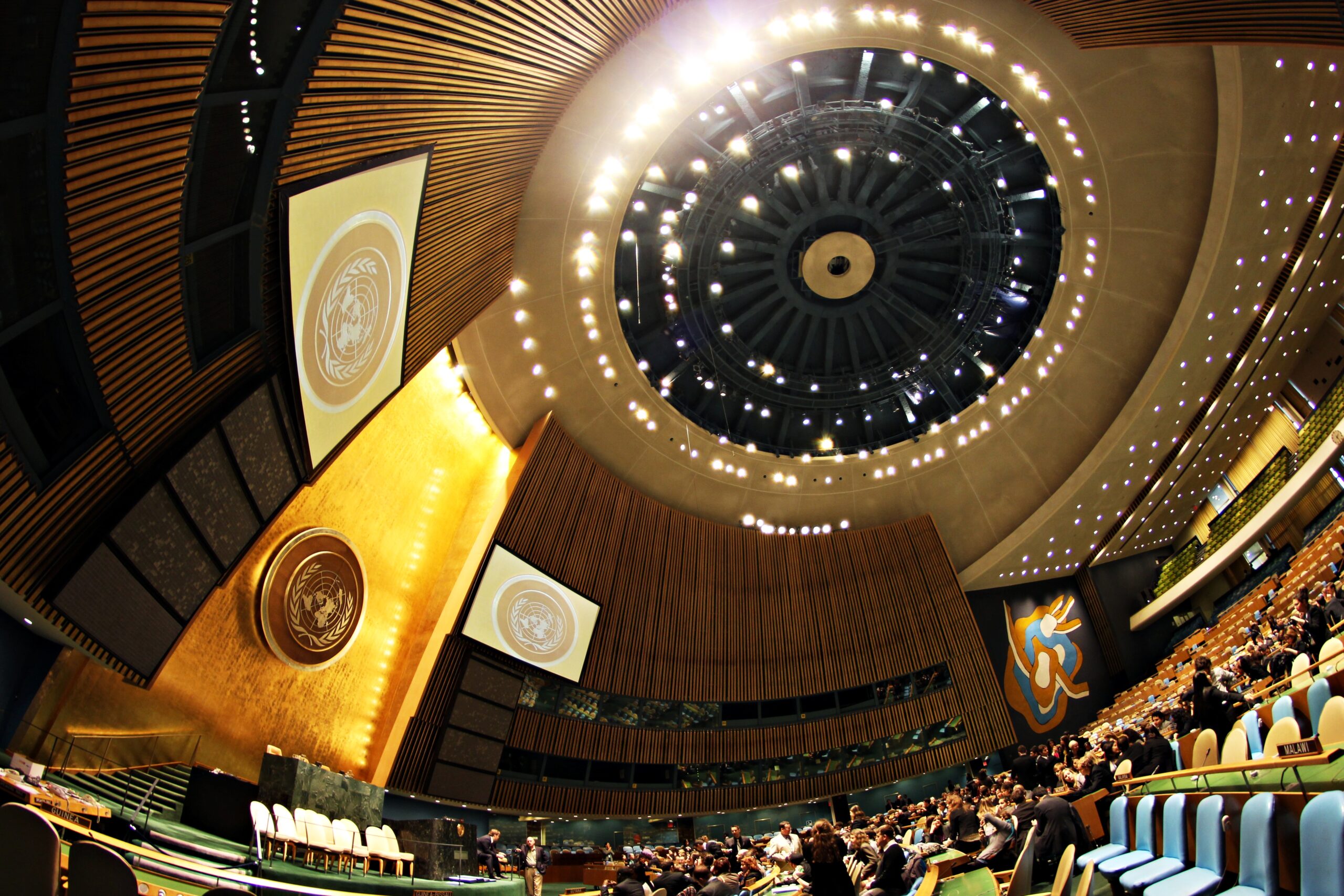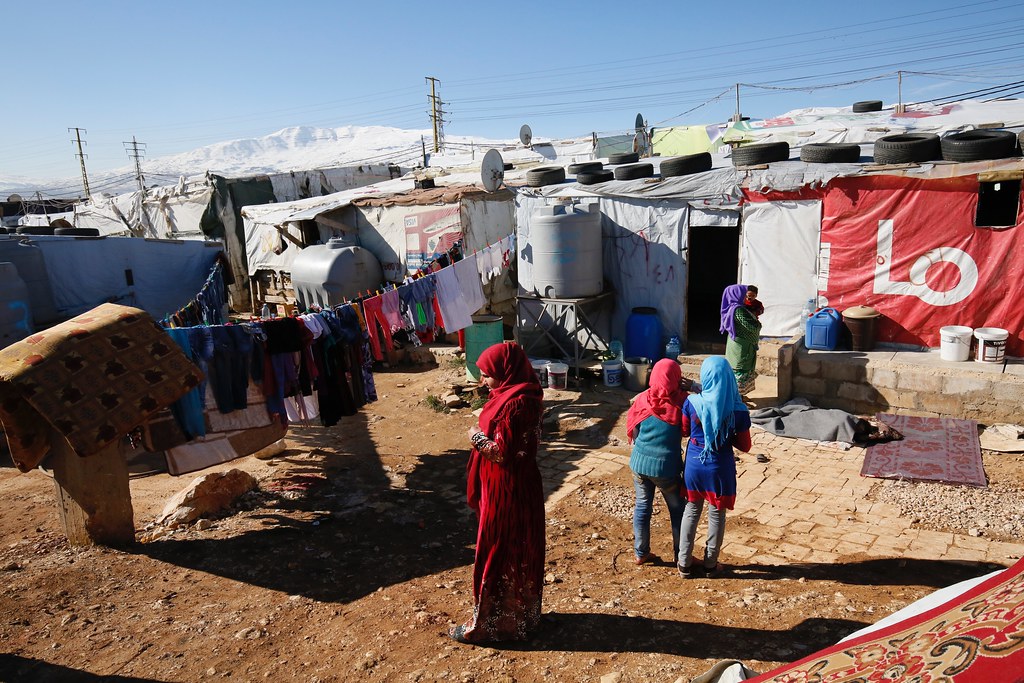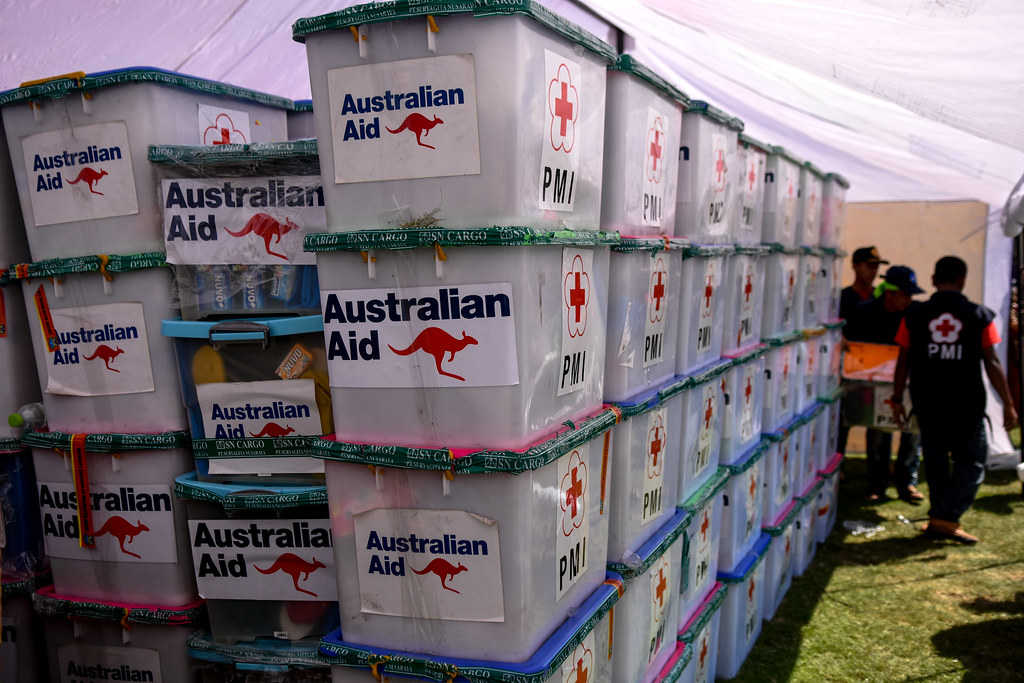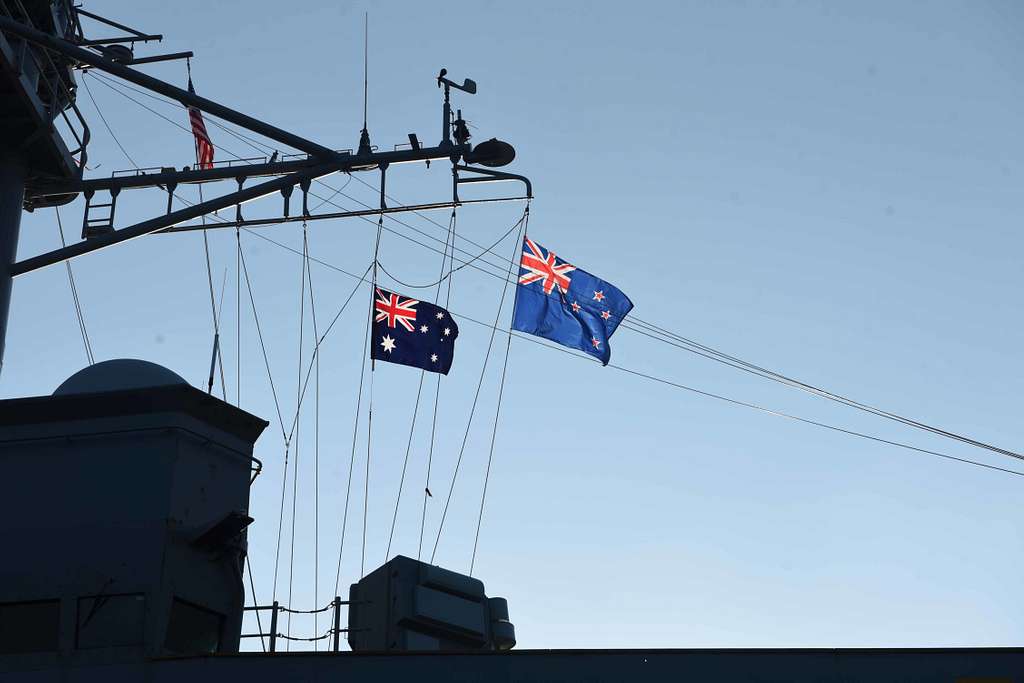Australia is joining other nations at the United Nations General Assembly in endorsing a declaration backing a two-state solution, signalling its readiness to formally recognise Palestine in a bid to revive stalled peace efforts. The Albanese government’s move reflects frustration with Israel’s hardline stance and hinges on new commitments from the Palestinian Authority to peaceful coexistence and reform.
At the United Nations General Assembly (UNGA) on 10 September, Australia was one of 142 signatories who endorsed the UN New York conference declaration that provided a roadmap for a peace settlement between Palestine and Israel through the implementation of a two-state solution.
This endorsement follows an earlier joint statement by Prime Minister Anthony Albanese and Foreign Minister Penny Wong on 11 August that Australia would recognize the State of Palestine during this month’s meeting of the UNGA. The actual date of formal recognition has yet to be advised.
These documents identify the key drivers for action now, and their implications.
Australia’s start point was its recognition that both Israel and Palestine have a right to exist, a position that both sides of Australian politics have maintained since 1947. However, the road to a peace settlement and joint recognition has been tortuous ever since. Joint recognition gained traction in the early 1990s, resulting the 1993 Oslo Accords, but events fell apart afterwards due to territorial disputes, internal political disputes on both sides, and especially the brutal attack on Israel on 7 October 2023 by Gaza-based Hamas, which severed ties with the Palestinian Authority’s (PA) Fatah party in 2007.
Although the past policy of Australia and many Western countries has been to defer formal recognition of the State of Palestine until the conclusion of a peace settlement with Israel, the Albanese government decided that it was now necessary to bring recognition forward to help facilitate the peace process. This was consistent with similar thinking amongst many other Western countries, and most other international governments.
The changed circumstances resulting in Australia’s decision can be summarised as threefold. First were the PA’s recent “major new commitments” including reaffirmation of its commitment to Israel’s right to exist, to pursue joint recognition and peaceful coexistence, and other major reforms, both directly to the Australian government, and through its membership of and same commitments by the Arab League. Australia’s joint statement is explicit that its support for Palestinian recognition is “predicated” on these commitments. The PA, through the Arab League, would later commit to the UN conference declaration.
Second, as acknowledged in the Albanese-Wong joint statement, Hamas rejects Israel’s right to exist, its actions damage the prospect of a two-state solution, and it has no role in Palestine’s future. It also demanded that Hamas must “end its rule in Gaza”, disarm, and unconditionally release all remaining hostages, potentially concurrent with “the full withdrawal of Israeli forces from Gaza”. Given this, it is difficult to merit the repeated claim by Israel and others that recognition of Palestine and the related peace process would “reward Hamas”.
Third was Australia’s concern that Israel was not committed to a peace settlement and two state solution. The joint statement criticised the actions by the “Netanyahu government” including those that are “extinguishing the prospect of a two-state solution by rapidly expanding illegal settlements, threatening annexation in the Occupied Palestinian Territories, and explicitly opposing any Palestinian state.” Specifically, their concern was Netanyahu’s commitment, along with his government’s hard-right members, to a Greater Israel, encompassing the whole of Palestine. That concern was confirmed the following day during an interview with Israel’s i24TV news in which Netanyahu stated he was on a “historical and spiritual mission” and “very” attached to the vision of “Greater Israel.” Given these circumstances alone, Australia and other governments appreciated the urgency of recognition to keep the two-state solution alive.
The UN conference declaration, which also seriously criticized the Israeli (and Hamas) actions, addressed Netanyahu’s intent by calling on the “Israeli leadership to issue a clear public commitment to the two-state solution, to immediately end violence and incitement against Palestinians, to immediately end all settlement, land grabs and annexation in the Occupied Palestinian Territory, including East Jerusalem, and publicly renounce any annexation project or resettlement policy…”. It goes on to say, “Full admission of the State of Palestine to the UN is an indispensable element of the political solution ending the conflict (and) enable full regional integration.” It’s noteworthy that while both the Australian joint statement and UN conference declaration are severely critical of Israel’s actions in Palestine, neither chose to describe them as apartheid, ethnic cleansing, or genocide.
Australia’s decision was consistent with the conclusion of a majority of other nations who previously deferred recognition, such as the UK, Canada and EU. Indeed, of the 162 nations that voted on the UN conference declaration, 142 voted for, only 10 voted against and 12 abstained. The only significant Western country to vote against was the US. However, notably, PNG, Nauru, Tonga, Palau and Micronesia also voted against, and Fiji and Samoa abstained.
The roadmap was also explicit in its demands on the PA, international support, and functionality requirements. It identified the PA as having sole responsibility for the administration and security across all of Palestine, that a Transitional Administrative Committee be established to operate in Gaza under the umbrella of the PA, and that a full reform agenda be established with full international support. The PA also committed to internationally supervised general elections within a year, enabling a new generation of leadership i.e. implicitly a younger, more representative, efficient and effective leadership.
Security guarantees for both Palestine and Israel were to be provided by a UNSC-mandated ”temporary internal stabilization mission” comprising troops from both regional and other countries.
So what has been Netanyahu’s response? For Australia, his reaction to the joint statement was a singularly undiplomatic and potentially divisive response on 19 August calling Albanese a “weak politician who betrayed Israel and abandoned Australia’s Jews”.
Moreover, Israel cancelled the visas of Australian diplomats accredited to the PA in response to Australia’s refusal to grant a visa to an Israeli far-right politician to undertake “solidarity” speaking engagements in Sydney and Melbourne. Albanese did not respond in kind to Netanyahu, but showed “toughness” in his announcement on 26 August the expulsion of Iranian diplomats for directing earlier antisemitic actions and undermining “social cohesion”. There is considerable speculation amongst Australian observers about the coincidence of this announcement, and sources of intelligence.
Internationally, Netanyahu has rejected all moves to pressure him into a ceasefire in Gaza, or peace settlement through a two-state solution. Netanyahu appears committed to his goal of Greater Israel, whatever the cost domestically, including the lives of remaining hostages, and internationally whatever the damage to Israel’s bilateral and multinational interests, and importantly, interests of the international Jewish community.
Internationally, Israel’s 9 September opportunistic attack on Hamas leaders in Doha while they were reviewing a US peace proposal facilitated by Qatar, is the most recent case of further significant damage to its reputation. It resulted in an Arab-Islamic emergency meeting a week later which very strongly condemned Israeli aggression against Qatar and Palestine as “aggression against all Arab-Islamic states”.
To date, President Donald Trump has supported Israel, including seeking to disrupt the UN process by denying visas to PA delegates to the UNGA, and would veto any peace settlement- and UN-recognition motion put to the UNSC. This puts the US on a conflict path with the great majority of nations internationally, including members of NATO, its Middle East allies and international institutions including the UN. It could also damage AUKUS, given Australia and the UK are supportive of change.
Unless there is a change of position in the US, or change of thinking or government in Israel, events could prove very destabilising. Watch this space.
This article is published under a Creative Commons Licence and may be republished with attribution.
Ian Dudgeon is a former president of the AIIA ACT Branch





